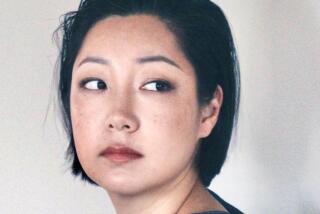Families tell of hidden Korean War executions
DAEJON, SOUTH KOREA — The young father, a fugitive, slipped back home one midnight to share a few fleeting minutes with his year-old daughter. But his joy was short-lived, as police burst in, kicked away the crying child and hauled him off.
Jun Jae-hung, wanted for helping his leftist brother flee to North Korea, never returned after that night in 1949.
Before even facing trial, he became one of tens of thousands of victims of hurried mass executions carried out in mid-1950 by South Korean authorities, bent on ridding the nation of communists in the early days of the Korean War. They feared that southern leftists might help the invading North Korean troops.
Jun’s baby girl, Sook-ja, now 60, was one of a dozen daughters, sons, sisters and brothers of victims who gathered one gray morning this spring in the secluded valley where their loved ones were shot and buried en masse, to recount their individual family tragedies.
For decades, before right-wing dictatorship gave way to democracy, the executions were a forbidden subject in South Korea. Now a government Truth and Reconciliation Commission is investigating the slayings, including a possible U.S. role.
The commission estimates that as many as 7,000 were summarily killed by military and civil police in Daejon, 90 miles south of Seoul. In small, preliminary digs, its teams have begun finding remains.
Jun Sook-ja said she heard from grandparents that her father worried about her because she was slow to grow, a result of what was later found to be a congenital heart problem.
When his wife, bringing him food in his hiding place in the hills, told Jun their baby had stood on her own for the first time, he couldn’t resist venturing back home for a quick visit despite the risks.
“I heard he woke me up and had me on my feet in a corner of the room, and was so happy,” Jun Sook-ja said. Then the police, evidently keeping watch, stormed the house, grabbed him and kicked away the baby as she clung crying to his leg.
“I don’t remember his face, but I miss him so much,” Jun said.
Ordinary convicts, like Moon Yang-ja’s father, also were swept up in the anti-communist slaughters. All Daejon prison inmates sentenced to 10 or more years were trucked off to the killing fields, former prison guard Lee Joon-young said in a separate interview.
“I followed him out of the room crying,” Moon, now 64, said of the snowy day in 1950 when police took her father away. “One of the police officers patted me on my back, saying, ‘Your father will come back in a couple of days.’ ”
Instead, he was sentenced to 10 years in prison for fraud and perished in the mass executions.
Others were believed to be victims of fabricated charges.
Yoon Jung-hee, 62, said her father was forced at gunpoint to put his fingerprint on a document saying he was the leader of a leftist group unknown to him.
The father, Yoon Yeo-byung, then 31, was sentenced to three years in prison but was taken away and executed in the summer of 1950 carnage.
Family members hold not only President Syngman Rhee’s right-wing regime responsible for their loved ones’ deaths, but they also believe that the mass killings wouldn’t have been possible without tacit support from the Americans, who were advisors to South Korean military units, supplied weapons and ammunition used in the executions and took photographs at some sites.
South Korea was a weak country, Jun said. “It was just after we regained our nation after Japanese colonial rule. I believe the U.S. strongly influenced” the executions, she said.
More to Read
Sign up for Essential California
The most important California stories and recommendations in your inbox every morning.
You may occasionally receive promotional content from the Los Angeles Times.










